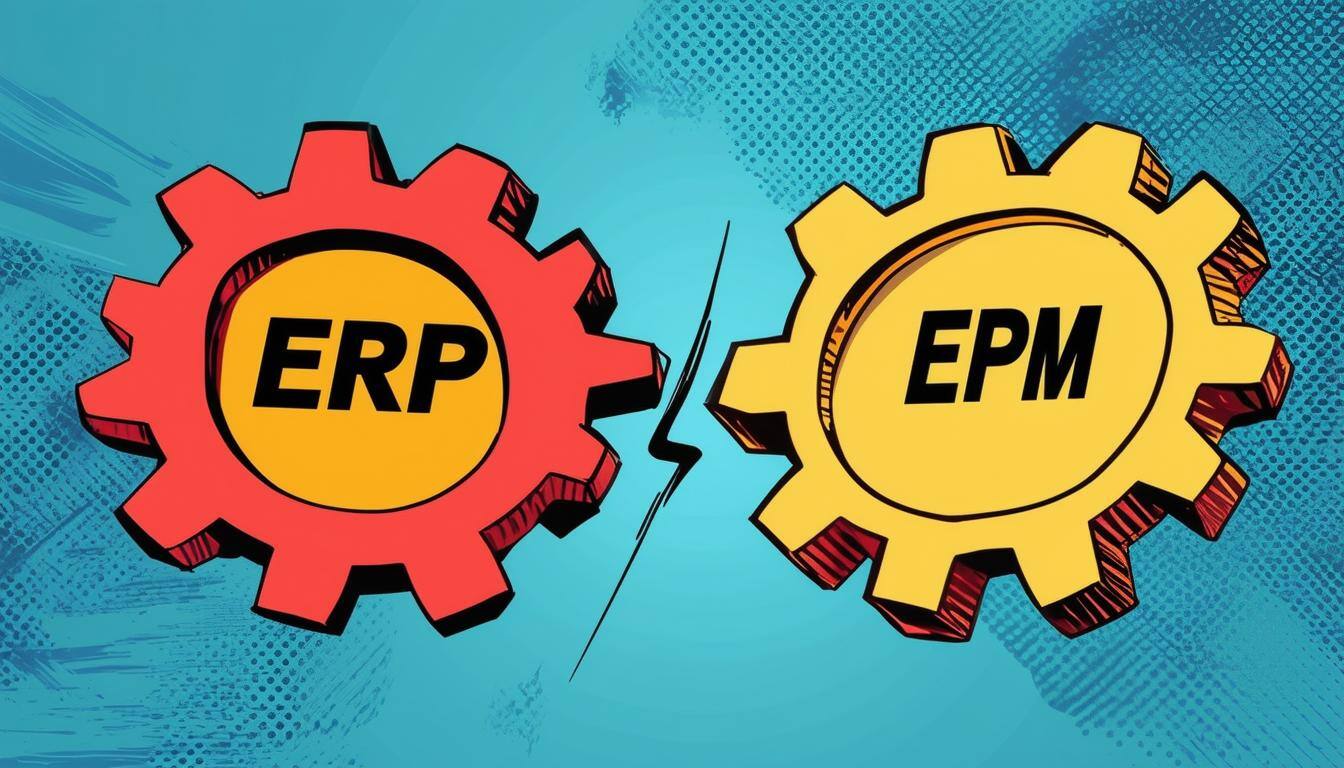In today's fast-paced business environment, agility and efficiency are crucial. Financial planning, budgeting, and forecasting are pivotal areas that can determine a company's success. That's why integrating NetSuite Planning and Budgeting (NSPB) which is Oracle’s EPM tool, into NetSuite can be a game-changer for middle market businesses looking to streamline their financial processes and drive growth. Let’s explore the key benefits of this integration and why it's becoming an essential tool for businesses worldwide.
1. Centralized Financial Data for Improved Decision-Making
One of the primary benefits of the NSPB integration is the ability to consolidate data across various financial systems. NetSuite is a powerful cloud-based ERP platform that offers real-time access to financial data, while Oracle EPM tools like Oracle Financial Consolidation and Close Cloud Service (FCCS) and Oracle Planning and Budgeting Cloud Service (PBCS) provide advanced analytics and reporting capabilities.
By connecting NetSuite with Oracle’s suite of EPM tools, companies can leverage a centralized data repository. This ensures that all stakeholders are working with consistent, accurate, and up-to-date financial data. With integrated systems, decision-makers can quickly generate comprehensive reports and dashboards, helping them make informed strategic decisions.
2. Streamlined Budgeting and Forecasting Processes
Budgeting and forecasting are critical components of any business's financial strategy. NSPB enhances the ability to create detailed, flexible, and accurate budgets and forecasts. The NSPB tools offer powerful planning capabilities that allow businesses to analyze historical trends and apply the Artificial Intelligence (AI) of predictive analytics to future projections.
NetSuite Planning and Budgeting enhances this process by enabling detailed modeling and scenario planning. With the combination of NetSuite ERP and NSPB, businesses can run multiple scenarios based on various assumptions, such as market shifts or regulatory changes. This empowers finance teams to respond proactively to changing conditions and reduce the risk of inaccurate forecasts.
3. Increased Efficiency with Automation
Manual processes and siloed systems often lead to inefficiencies and errors in financial planning. With the integration of NetSuite and Oracle EPM tools, automation becomes a key benefit. Prebuilt data integrations between these NetSuite modules enable a smoother automation of financial consolidation, reporting, and budgeting cycles.
For example, NSPB’s built-in automation tools can streamline the process of data entry and validation, while the NetSuite accounting tools can automate financial close processes. The result is a reduction in manual effort, freeing up valuable time for finance teams to focus on strategic tasks, analysis, and planning.
4. Enhanced Collaboration Across Teams
Modern businesses require collaboration across multiple departments—whether it's sales, marketing, operations, or finance. Integrating the NetSuite EPM tools into NetSuite promotes cross-functional collaboration by providing shared visibility into the company's financial health and performance.
With the integration, stakeholders from different departments can access the same financial data in real-time, making it easier to align objectives, create unified plans, and set common goals. Furthermore, the integration provides powerful tools for collaboration, such as version control, comment tracking, and workflow management, which can help ensure that everyone is on the same page during the planning and budgeting processes.
5. Scalability and Flexibility for Growing Businesses
As organizations grow, their financial planning needs become more complex. The integration of NetSuite EPM tools offers the scalability needed to support these growing demands. Both systems are designed to scale as your business expands, whether it's adding more users, increasing data volume, or expanding into new markets.
The flexibility of NSPB allows for customized workflows and budgeting models, while NetSuite’s EPM tools provide enterprise-level reporting and analysis. This scalability ensures that your business can adapt to new challenges while maintaining a robust and streamlined financial planning system.
6. Stronger Compliance and Risk Management
In an increasingly regulated business environment, compliance and risk management are top priorities for CFOs and financial teams. NetSuite and EPM tools provide enhanced governance, risk management, and compliance (GRC) capabilities. With these two integrated modules, businesses can ensure that they meet regulatory requirements while mitigating financial risks.
For example, NetSuite’s EPM tools support compliance with financial reporting standards like IFRS and GAAP, while NSPB’s robust budgeting and planning features ensure that organizations can track and forecast risks effectively. The integration helps create a clear audit trail and allows for better tracking of financial performance against key risk indicators.
7. Real-Time Reporting and Analytics
Business environments are evolving rapidly, and the ability to make data-driven decisions in real time is essential. The integration of NetSuite with Oracle EPM tools provides powerful real-time reporting and analytics capabilities that enable executives and managers to assess financial performance at a glance.
NetSuite’s EPM tools offer advanced analytics, allowing users to analyze large datasets across multiple dimensions. NSPB contributes with flexible financial modeling and budgeting features. By combining these capabilities, businesses gain access to real-time insights that help them identify trends, track key performance indicators (KPIs), and adjust their strategies swiftly.
Conclusion: Unlocking Greater Business Value
Integrating NetSuite with Oracle’s EPM tools unlocks a world of benefits for organizations looking to enhance their financial planning, budgeting, and forecasting processes. The synergy between these two powerful systems offers businesses improved data centralization, better decision-making, greater efficiency, enhanced collaboration, and more scalable solutions as they grow.
As businesses face increasing pressures to stay competitive and respond quickly to changing market conditions, this integration provides the tools needed to stay ahead. By embracing the power of NetSuite and Oracle’s NetSuite EPM tools, companies can gain greater visibility, improved accuracy, and stronger financial controls—ultimately leading to a more agile and successful organization.




